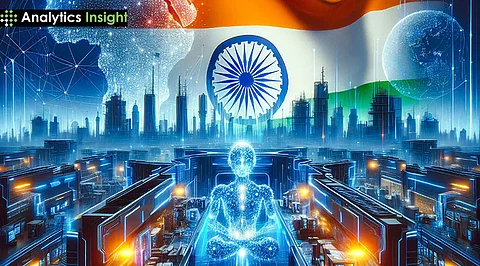

Almost every field in this world is transforming with artificial intelligence, and it is no exception for India. One of the fastest-growing markets of AI technology globally, India is on its way to becoming an important part of the global AI scene. The market size is expected to reach $8 billion by 2025, thus offering enormous potential for growth and innovation.
The Indian market for AI is progressing vividly. Some major factors behind its rapid growth are the talent pool in the country, the budding ecosystem of startups, and increasing investment by both national and foreign players. According to industry reports, the Indian market for AI is expected to grow more than 40% every year between 2020 and 2025. It is growing with new technology and the increasing demand for AI in most industries.
The main industries are investing in AI solutions to enhance their work and to enable them to make good decisions. For example, AI can predict diseases and treat patients according to their needs in the health sector through a personalized approach. In agricultural sectors, crop yields can be increased using data insights and AI.
Major announcements have revealed that top tech companies are investing heavily in India's AI infrastructure. Key highlights include:
Microsoft's $3 billion investment: Aims to enhance cloud and AI infrastructure in India over the next two years.
Accelerating AI adoption: Targets speeding up the adoption of AI technologies to drive innovation.
Workforce development: Plans to train 10 million people by 2030 to build an AI-ready workforce.
Economic growth: Initiatives like this support economic growth and drive innovation in India.
This will result in various business and entrepreneurial ventures in India about AI applications. In the finance domain, for example, AI is applied to detect fraud, make risk assessments, and deliver automated customer service. With better security and an even better customer experience, these institutions are seeking continuous improvement and implementation of such solutions.
The rise of AI technology in precision farming enhances yields and sustainability by monitoring crop health and optimal resource use in agriculture. AI gives farmers the right knowledge and guidance to make good decisions for their crops and lives.
The retail sector also sees big effects from using AI. AI algorithms help retailers create personalized marketing plans and manage their inventory.
Though there are some promising forecasts regarding AI in India, the list of challenges it must overcome before actually realizing the expected potential is also long. There is one key issue concerning data privacy; these companies are amassing an unprecedented amount of personal information just to train their algorithms. Data protection will be essential in building trust from the consumer end.
There is also an immediate need for qualified professionals to design and deliver AI solutions appropriately. Although such initiatives as Microsoft's training millions of individuals, among others, are a move in the right direction, efforts should be all-around to cover the skills gap.
The future of AI in India is promising. The market size is projected to reach $8 billion by 2025, offering growth opportunities in many areas. With data privacy and skill development challenges on the one hand and investments in technology infrastructure on the other, the way forward is paved for a flourishing AI ecosystem for both the economy and society at large.
